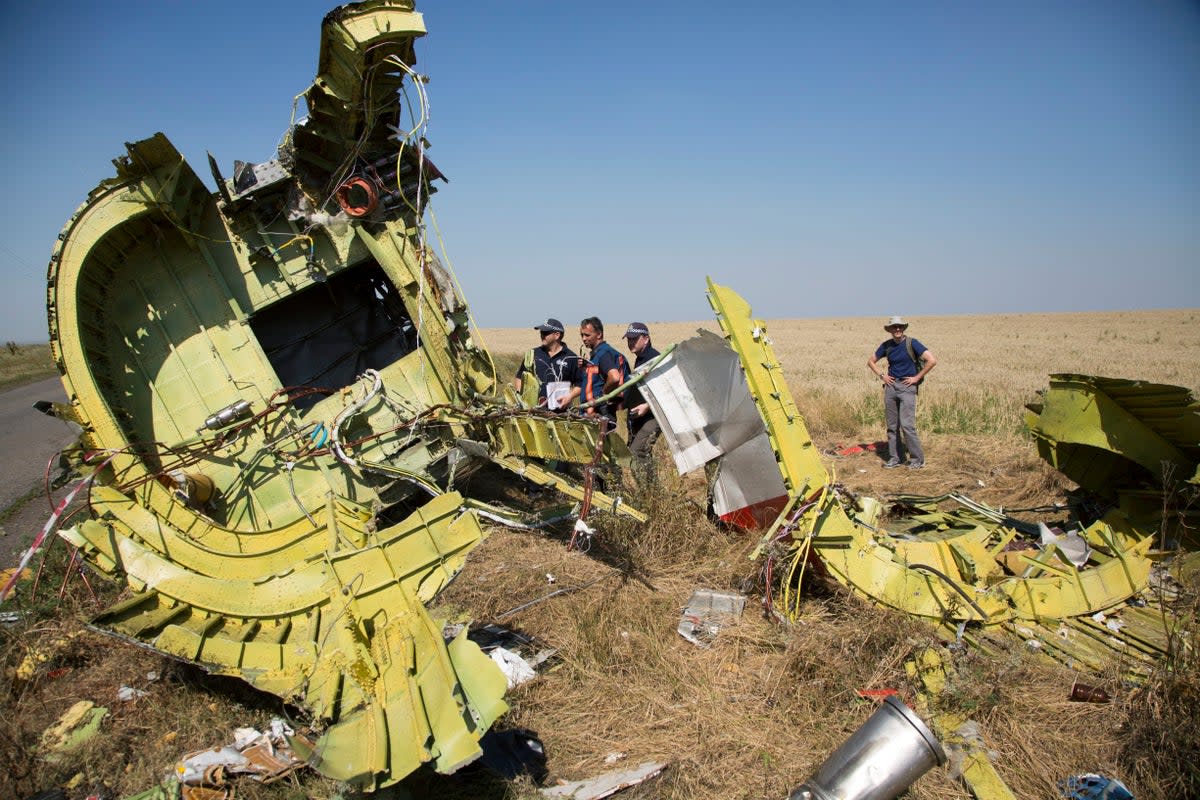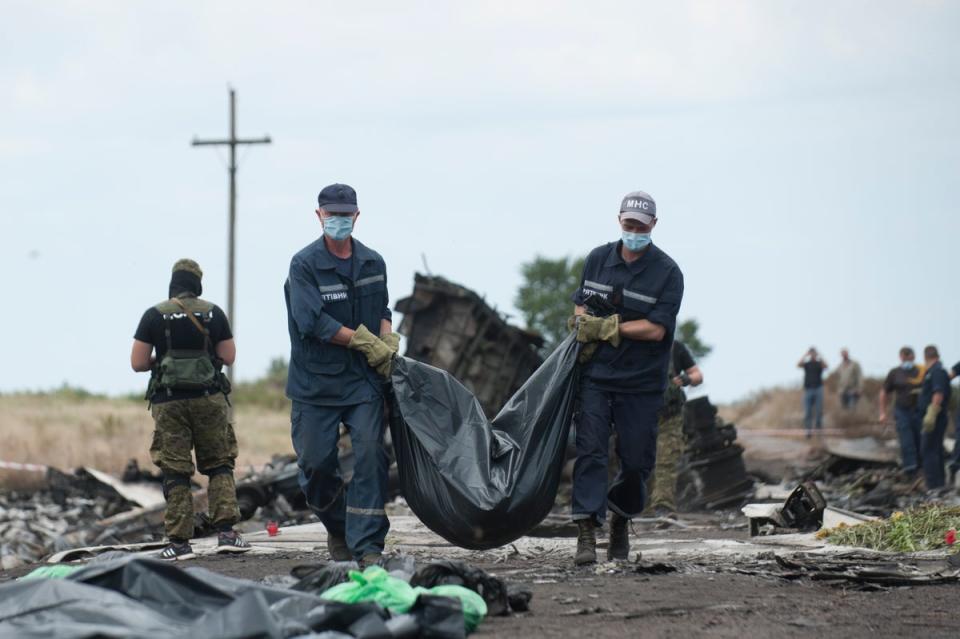Three men guilty of murdering 298 people on MH17 flight with Russian-made missile

Three men have been convicted of killing all 298 passengers onboard Malaysia Airlines flight MH17, which was brought down by a Russian made-missile while flying over Ukraine in 2014.
They are former Russian intelligence agents Igor Girkin and Sergey Dubinskiy, and Leonid Kharchenko, a Ukrainian separatist leader. A fourth, Russian Oleg Pulatov, was acquitted.
Presiding judge Hendrik Steenhuis said evidence presented by prosecutors at a trial that lasted more than two years proved that the Boeing 777 flying from Amsterdam to Kuala Lumpur was brought down by a Buk missile fired by pro-Moscow Ukrainian rebels on July 17 2014.
None of the defendants appeared for the trial that began in March 2020.

The prosecution had sought life sentences for all four.
On 17 July 2014, a Malaysia Airlines Boeing 777 was flying from Amsterdam to Kuala Lumpur under the flight number MH17 at an altitude of 33,000 feet.
It was one of 160 flights that crossed the airspace of eastern Ukraine that day. MH17 crashed near the Ukrainian village of Hrabove.
An exclusion zone prevailed at 32,000 feet because of the conflict between the Ukrainian government and Russian-backed rebels.
Five countries – the Netherlands, Australia, Belgium, Malaysia and Ukraine – formed the Joint Investigation Team (JIT) into the tragedy.
On 24 May 2018 the JIT announced that the Buk missile installation that brought down the flight belonged to the Russian army.
The missile, which can reach a height of 80,000 feet, was fired from rebel-held territory in eastern Ukraine – at a target that may mistakenly have been assumed to be a Ukrainian military aircraft.
Judge Steenhuis opened Thursday’s hearing and said "the court takes the view that the MH17 was brought down by a Buk missile" launched from an agricultural field in eastern Ukraine.
"The truth on the table - that is the most important thing," said Anton Kotte, who lost his son, daughter-in-law and six-year-old grandson when MH17 was shot down. He said the hearing was a "D-Day" for relatives.
Robbert van Heijningen, whose brother, sister-in-law and nephew were killed, called the downing "an act of barbarism" that he could never put behind him, regardless of the verdict.
"I call it a stone in my heart, and stones... don’t disappear," he said.
The Hague District Court sat at a high-security courtroom at Schiphol Airport.
Hundreds of family members of people killed had travelled to the court to hear the verdict, bringing them back to the airport their loved ones left on the fateful day MH17 was shot down.
Dutch prosecutors said the missile launcher came from the 53rd Anti-Aircraft Missile Brigade, a unit of the Russian armed forces based in the Russian city of Kursk and was driven back there after MH17 was shot down.
The suspects are not accused of firing the missile but of working together to get it to the field where it was fired. They are accused of bringing down the plane and the murder of all those on board.
The most senior defendant convicted is Igor Girkin, a 51-year-old former colonel in Russia’s Federal Security Service, or FSB.
At the time of the downing, he was defence minister and commander of the armed forces of the self-proclaimed Donetsk People’s Republic - the region where the plane was shot down.
Girkin is reportedly involved in Russia’s war on Ukraine.
Also convicted were Girkin’s subordinates, Sergey Dubinskiy and Leonid Kharchenko, a Ukrainian who prosecutors say was commander of a pro-Russia rebel combat unit who took orders directly from Dubinskiy.
Oleg Pulatov was acquitted and defence lawyers accused prosecutors of "tunnel vision" in basing their case on the findings of an international investigation into the downing while ignoring other possible causes.
In a video recording played in court, Mr Pulatov insisted he was innocent and told judges: "What matters to me is that the truth is revealed. It’s important for me that my country is not blamed for this tragedy.”


